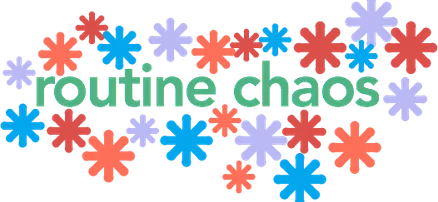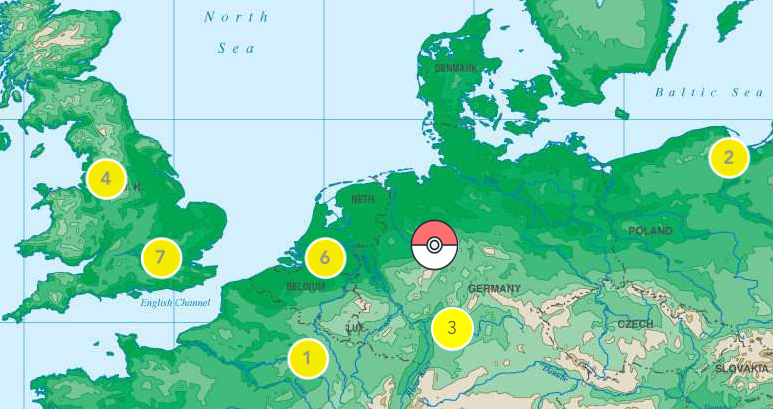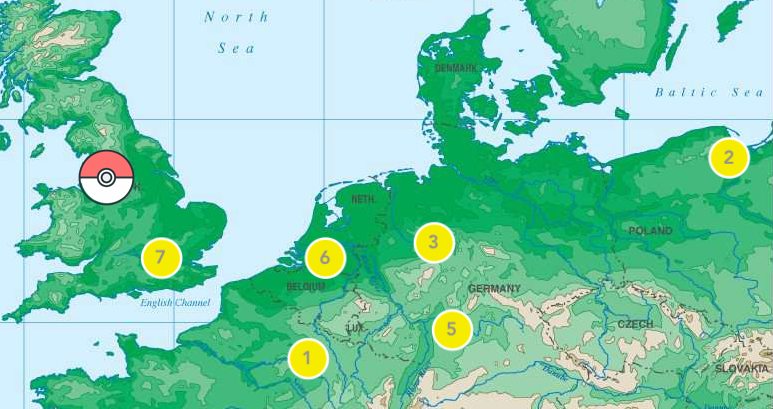Planning with themes
I am not exactly the goal-driven type1 when it comes to the way I think about my life. I've joked for a long time if anyone asks me what I want to be doing in 5 years that I want to be doing something that no one has even thought up yet. I like remaining open to possibility and keeping an eye out for those rare opportunities that feel like they're worth pushing all of the chips into the middle of the table. I was 100% that person that rolled his eyes at the idea of new year's resolutions and life goals and such2. I also hit a point a few years ago where I was feeling a little bit stagnant, like I needed to find a bit more focus instead of just letting inertia carry me forward. For the last 3 years, I've been gradually refining a practice around annual goals that has felt really satisfying and has worked for me. I think 2021 may have been one of the most significant years of my adult life, one of those years that feels pretty transformational, and as I look back on it I can see the trail of bread crumbs that leads back through those 3 years. Today I'm going to share a little bit about how I've been approaching my annual goals, and next week I'll go behind the curtain with a little personal year in review.
The truth is that most of the way I do goals is nothing particularly novel or unique. You can find plenty of resources on things like SMART goals, and there's a pretty good chance that if you do something like this in your professional life there's some format you've had to do it in to get a budget approved or something.
The biggest thing I did, however, that changed my mindset around goal setting was to change the emphasis away from goals and achievement and reorient around advancing my values. The focus on a specific outcome to be achieved can be helpful, but I've also seen it play out for myself and others that life changes and the outcome ceases to be relevant. Too often we don't change tack on our goals when we ought to3.
So now I don't start my process with specific things I want to achieve. I start with a few statements of what I value that I'd like to focus on in the coming year. These won't be comprehensive in articulating all of my values4; they're meant to give me focus as far as where I want to put my time and energy. They are the themes I want to define the year, that I hope to look back on and see as important areas of growth and progress. They aren't SMART goals, they aren't even goals. But they are the themes that will frame my goals. They are few - usually 3, certainly no more than 5. If there are too many, then I'm not really focusing (or I'm deluding myself about my actual capabilities).
I gut check these statements. Do they feel right to me? Do they capture something that I feel like I really care about? At the end of the year, I'm going to look at these statement and goals be damned - I want to be able to look in the mirror and honestly be able to tell myself that I think I did right by these intentions.
Just to help ground this, these were my 3 big themes for 2021:
- Infuse sustainability and vitality into every facet of our lives
- Lay the foundation for greater flexibility financially and professionally
- Own my identity as a creator
And then I start to write up what I want to do in the coming year. I start in a generative mode - anything can land on the page in the first round. I do not care at this point about how these things are framed. I'm just trying to give some clarity to how I see the year might play out.
Once I have the first long list, I run through item by item and see if I can match it against one or more of my themes for the year. If not, I cross it out. At the end, I should have a list of things I want to do in the year that fit the themes I've said I really care about. I give it another pass and ask myself if I'm really serious. Usually a handful of items on the list get crossed off on this next go round. At that point, I have a list that's probably not more than 12 items long and could be half that length. The number of items doesn't really matter. It's not better to have more or worse to have less (or vice versa).
When I have a list that feels ambitious but achievable, I turn it into something that can actually be objectively measurable. This is not some plan to which I am rigidly bound, it's my best hypothesis at the time about what I need to actually do to feel like I've really brought the themes to life. But remember: themes trump goals. There is a way to achieve a goal and not advance a theme, just as there's a way to advance the theme without achieving the goals.
Again, making this concrete, here were my 2021 goals (in parenthesis, how they map against my big themes):
- Standup 1 non-ALX side project (2, 3)
- Move to Holland (1, 2)
- At least a monthly date with Sarah (1)
- All 3 kids comfortable on bikes and comfortable in Dutch language (1)
- Create 1 thing in 6 different media (2, 3)
- A structured reflection at least 3 days/week (1, 3)
- Read 30 books
A couple things stand out there:
- That last one doesn't map to any themes. Didn't I just tell you all that if it doesn't map to a theme, you strike it off the list? Am I cheating at my own system? Listen, man, reading is reading. You could probably argue that it's the fuel behind all of the themes (for funsies, I just did a quick informal survey of the books I read that I could map to one of those themes. It's only about a third of my total). The truth is, it's just become a habit that every year I set some target for how much I want to read in the coming year. I arrived at 30 for this year through a very scientific process in which I asked my oldest son how many books he thought I should try to read, and he said 30, and I said that seemed like a lot, and he said he reads way more than 30 books in a year, so I wrote it down.
- There is nothing about my formal professional life in there. Is that foreshadowing something deeper and more meaningful? Or is that because I have those recorded somewhere else? A bit of both, honestly. For my own practice, I find that it's never been a problem to have ambitious professional goals every year, every quarter...but I need these supplemental goals for my non-professional life to keep my professional life from crowding out everything else. There are years that some professional goals show up in there (I can guarantee that 2022 will have some).
Once I have the list, the last thing I want to do is try and take away as much stupid friction as possible. I've got a whole post coming soon about weeding out unnecessary friction, but in this case it usually means basic things like putting in some building blocks on my calendar for anything that can be rhythmic, figuring out the tools I'll use for certain projects, and even just defining some of the constraints around them. For my reading list, it's getting a few books to start the year with. Again, this isn't about being comprehensive - it's about putting in place just enough that you can get some sustainable momentum. I'm not trying to tackle all fronts all at once. I'll come back and revisit this list pretty non-systematically. Maybe once a month? Maybe once a quarter? I have found for myself that putting in the upfront work of defining the themes and really thinking through how I want to bring them to life goes a long way and papers over a lot of my sins of omission in maintaining a working system.
So there it is. 4 steps:
- Define themes.
- Map objectives against themes.
- Make your desired outcomes concrete.
- Remove enough stupid friction that you can build early momentum.
How did I do this year? Look out for my next post, which will give the rundown on my themes and my specific objectives along with a few other goodies for the year in review.
I swear this isn’t an accidental series on things I am not. Though maybe it should be? “Confession: I am not a Catholic Saint” “Let’s be real guys: I am not a BTK superfan.” The possibilities are endless. ↩
True confession: I probably still drop a good eye roll on new year's resolutions. ↩
Whether out of naivete or pure stubbornness really depends. ↩
God, that would be awful. ↩





